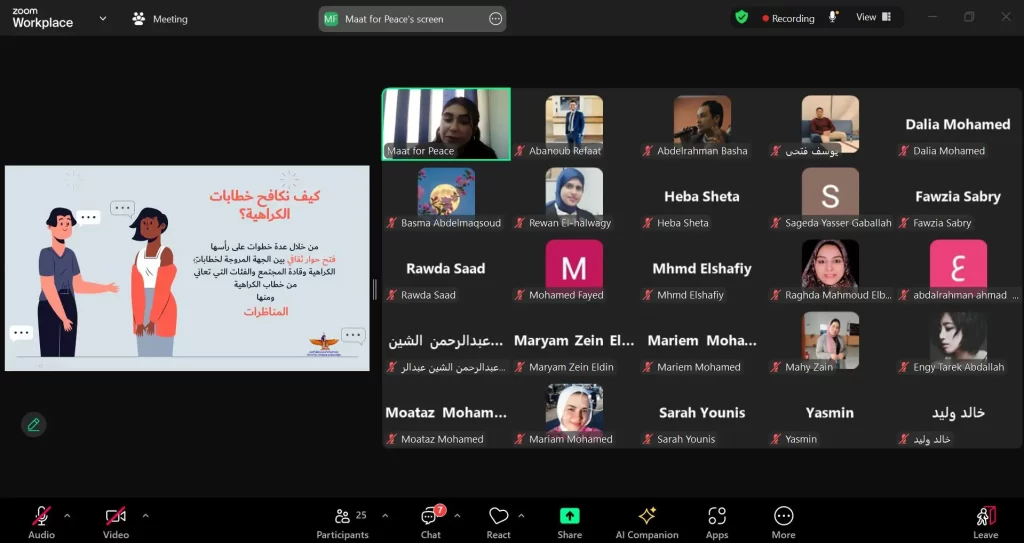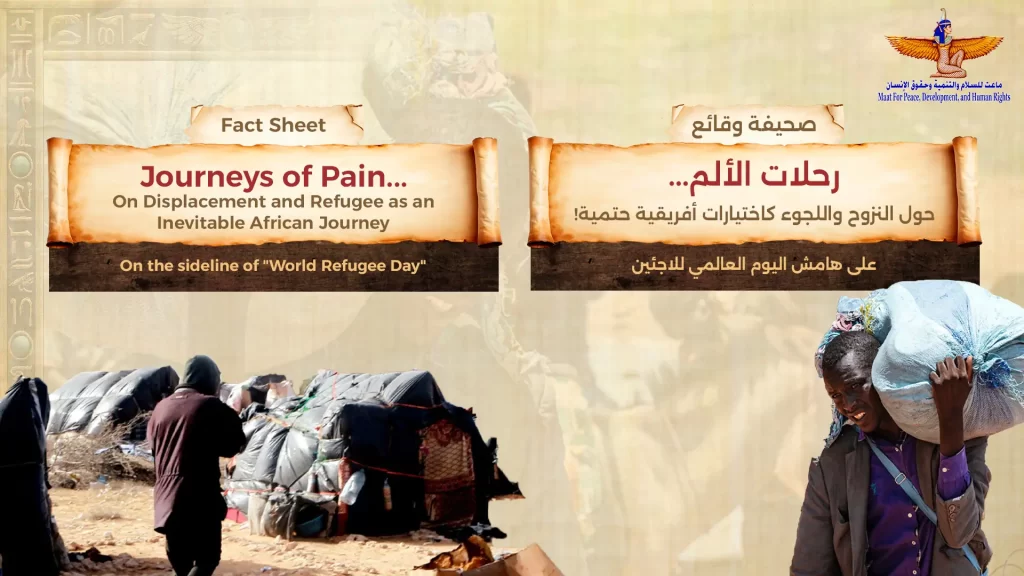Okeil: media illiteracy must be eradicated given the internet boom
Marina Samy: The Academy seeks to promote media culture
Mariya Veleva: The citizen journalism project enhances the ability of young people to analyze information
Maat for Peace, Development, and Human Rights participated in the activities of the "Citizen Journalism Academy for Youth" project, which launched its first phase in Albania at the end of April with the participation of seven organizations from seven countries, namely (Greece - Italy - Albania - Bulgaria - Jordan - Tunisia - Egypt).
The "Citizen Journalism Academy" project consists of three phases extended over two years. The activities of the first phase aim to enhance cooperation and exchange of ideas and solutions among young people to learn about citizen journalism and media literacy as a means for effective participation in society, and to enhance leadership and organizational skills among participating youth, in addition to adopting new methods to interact with young people through digital means.
The second phase of the project aims to identify measures that will enhance skills in media education and citizen journalism, and exchange best practices for citizen journalism based on national cultural contexts in the participating countries. At the end of this phase, young people create worksheets to identify measures to facilitate media literacy.
In the third phase of the project, the participating organizations will develop a common methodology, which includes prototypes for an online training course, a training toolkit, and a written guide translated into several languages to help youth participate in the project.
In this context, Ayman Okeil, a human rights expert and president of Maat, stressed that "citizen journalism" is a new media pattern that occurred as a result of the boom in the internet and social networking sites, which provided citizens with opportunities for publishing and expressing their opinions, and also involved them in issues of public affairs and supporting democratic practices. Okeil indicated that there are a number of blogs that create and share individual content that may not be available in other media outlets.
On her part, Marina Samy, the media coordinator at Maat, pointed out that in light of the spread of news that impacts our lives, we need to support media culture and raise awareness of handling various media and responding effectively to them, which is the aim of the project so that the citizen can assess, analyze, interpret, and criticize the broad spectrum of digital content they expose themselves to without being affected by it.
Mariya veleva, a member of the Foundation for Entrepreneurship, Culture and Education (FECE) in Bulgaria, a coordinating organization of the "Citizen Journalism" project, stated that during the spread of the Covid-19 pandemic, many rumors and false news have been widely circulated, which created a state of panic in the whole world. Therefore, we must respond to this misleading news. The importance of this project lies in enhancing the ability of young people to analyze information, and then fighting rumors and not providing the opportunity to provoke controversy and debates that support misinformation, as well as exchanging best practices for citizen journalism initiatives. Finally, Mariya sent a message to young people worldwide: "Find the true journalist inside you, embrace him, and then change the world."
shortlink: https://maatpeace.org/en/?p=35142












